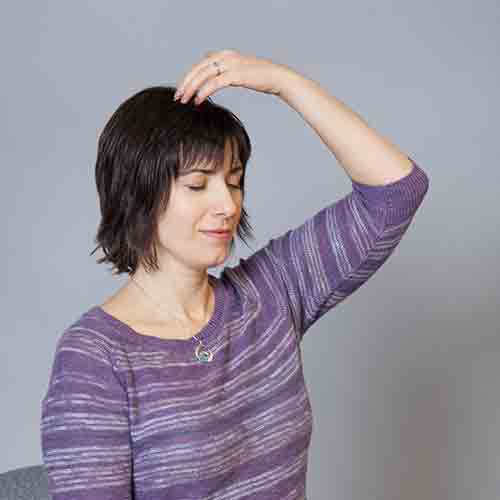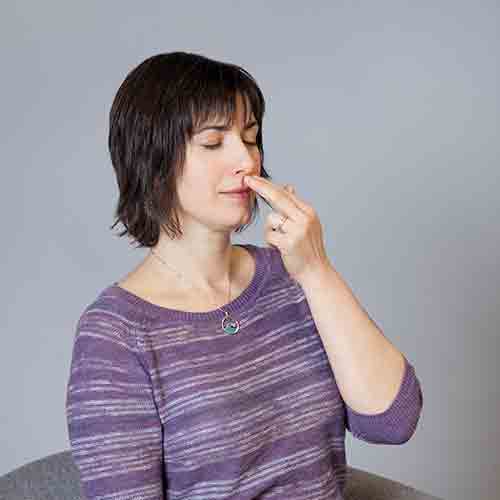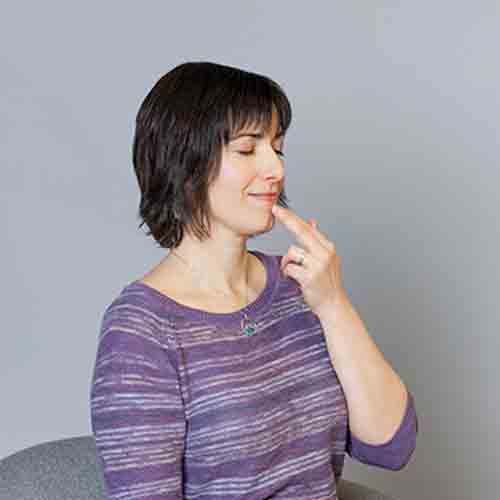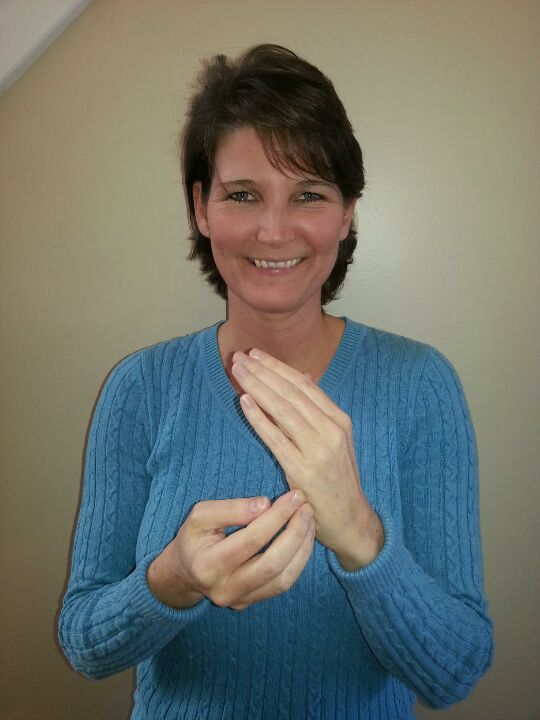By tapping specific pressure points on the body, it is believed that negative energies causing pain (whether physical or emotional) are disrupted, and therefore balance is restored to the physical and emotional body.[1]
The Origin of the Emotional Freedom Technique
EFT has close ties to acupuncture, in that it physically touches on specific points on the body, believed to hold epicenters of energy. With acupuncture, these points are picked with acupuncture needles to alleviate pain, tension, and combat illness. Over the years, however, researchers and healers alike have realized that tapping on these pressure points of the body offers similar results to that of acupuncture. One such psychologist, Roger Callahan, used the idea to treat one of his patients who was deathly afraid of water. Through the course of her many treatments, all of which proved ineffective, Callahan almost accidentally stumbled into the tapping technique when his patient complained about feeling anxious in her stomach at the thought of water. He asked her to tap underneath her eye, knowing that this location had a direct connection to the acupuncture meridian in her stomach. Unknown to him, he was building the idea that tapping could ease his patient’s anxiety. That’s exactly what happened – after tapping under her eye, the patient experienced a sudden release of stomach sensation, almost immediately. To make matters even more surprising, the patient’s fear vanished so quickly and profoundly, that she was able to run to the nearest swimming pool and stand on its edge without the deathly anxiety that used to plague her.[2] Eventually, Callahan coined the tapping technique as Thought Field Therapy (TFT), where the client would tap specific points while thinking of the problem or anxiety they were struggling with. Many years later, a student of Callahan’s would take this notion, and add to it elements that we see and use in Emotional Freedom Technique today. Gary Craig, a former student of Callahan’s, added to his teacher’s already widely-used TFT tool. By asking clients to tap on specific points in sequence, and repeat a phrase out loud while tapping each one, he essentially became the developer of EFT; but not without years of foundational work laid down by his predecessors.
How Does the Emotional Freedom Technique Work?
The energy centers of the body can best be thought of as meridian points. These are like energy channels connecting the highways of the body, and therefore connecting us to our sensations – which can often be rooted in physical pain and emotional fear. When these negative sensations come up, they disrupt the balance of the body, and we feel off in some way. By lightly tapping each of these meridian points in sequence, and repeating how we feel and what we’re struggling with, out loud, we cut the chain of negative reactions and sensations from continuing to plague us. Whatever we’re dealing with – whether it’s a bad memory, a struggling relationship, a moment of intense fear – we can use tapping to concentrate on accepting and resolving the negative emotion, so that we can allow the body to restore itself to order and balance. [3] The video below offers an overview of the tapping points, and their significance in the EFT technique.
How to Find the Right Points
It is generally advisable to tap with one hand (it doesn’t matter which), and specifically with your index and middle fingers together. Tap solidly for approximately 5-7 taps, but not so hard that you hurt or injure yourself. You want to feel the pressure on the meridian points as you tap; this will come naturally with practice. The following tapping points are done in sequence every time, and are repeated until the tapping session is over (generally until you start to feel better). [4]
Top of the Head
The first point is on the top of your head, tapping the crown of the head. This can be done with either hand, depending on your preference.[5]
Eyebrows
Then, move into tapping the very beginning of your eyebrow, where it’s closer to the nose. Again, this can be done with either hand.[6]
Side of the Eye
Move over to the side of your eye (whichever one), and tap on the bone bordering the outside corner of the eye.
Under the Eye
Then, move under the same eye and tap the bone directly underneath.
Under the Nose
Move down slightly to the area between the bottom of your nose and your upper lip, and tap solidly there.
Chin
Then, move down to the area between the bottom of your lower lip and the bony part of your chin, and tap solidly there.
Collar Bone
From your chin, move down to the U-shaped notch directly below the throat (generally where a man would fix his tie); move over to the collarbone and slightly below, where it’s not on the bone itself. Tap this area solidly with either hand.
Under the Arm
From your collarbone, reach down under the arm and solidly tap the area even with the nipple. For women, this is the middle of the bra strap.[7]
The Outside of the Hand
Lastly, tap the outside of the hand, slightly below the pinky finger, on the cushion of the side of the hand.[8]
What To Say While You Tap
Once you know where and how to tap, it’s time to tune into what you’re struggling with. Bring to mind an issue or an emotion that you’re dealing with, and tune into how this feels, and what it is. The more attuned you are to it, versus simply trying to push it away, the more it can rise to the surface to be processed and worked through with the help of EFT. The typical EFT phrase template is: “Even though I have this _______, I deeply and completely love and accept myself.” By filling in the blank as to whatever you’re struggling with, repeat this phrase as you tap onto each meridian point. The benefit of saying this phrase is to not only release it from your physical and energetic body by saying it loud, but also by accepting the problem you’re with. For many of us, denial and dismissal of problems and struggles leads to the festering of that problem, until we’re sick and diseased with trying to keep it all in. What EFT does is give that problem an outlet and a recognition, reminding us that we are not defined by our struggles. In the face of them, we still accept ourselves as we are. Some examples of phrases that you may use are:
Even though I am scared of this test, I deeply and completely love and accept myself. Even though I am scared to be judged, I deeply and completely love and accept myself. Even though I am angry at her, I deeply and completely love and accept myself. Even though I feel this pain in my body, I deeply and completely love and accept myself.
How long you tap is entirely up to you. For some, 10-15 minutes is an average amount of time spent tapping. Doing it when you wake up first thing in the morning can help you set the tone of the day, and enter your tasks at hand with a little more space and ease. However, when you tap is still generally up to you. When you’re done, simply sit in stillness and notice how you feel – both physically, emotionally, and energetically. You will likely start to notice a bit more rest and relaxation, as well as disconnect from the problem or struggle that you’ve been dealing with. This is the energetic shift of the energy in the meridian points, and the true magic behind the EFT technique. Come back to it in practice whenever you need it.
Final Thoughts
The Emotional Freedom Technique (EFT), also known as Tapping, is an alternative and holistic method by which to tap onto meridian points of the body, to restore balance in the wake of negative emotions or physical pain. By giving your problems a voice and an outlet, and by tapping while speaking, you’re cutting off the negative chain of reactions in the body, and bringing yourself back to homeostasis – all with the simple power of a finger tap. Long rooted in the history and power of acupuncture and Eastern medicine, EFT is a tool free to use by anyone, with healing effects proven to be simple and profound.
More Calming Techniques
5 Breathing Exercises for Anxiety (Simple and Calm Anxiety Quickly) The Guided Morning Meditation for Beginners (That Will Change Your Day) How to Practice Guided Meditation for Sleep to Calm the Mind
Featured photo credit: Noah Silliman via unsplash.com







